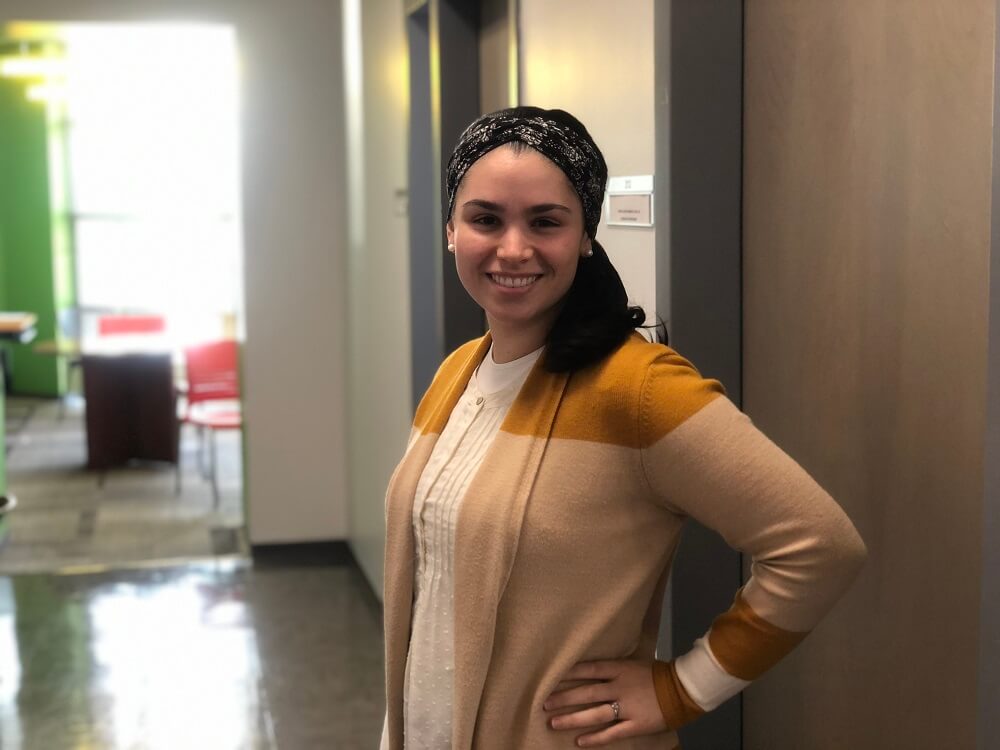Naomi Sobin
“Nursing School Challenged Me"

Naomi Sobin grew up on a farm in rural Washington. She moved to New York to attend Lander College for Women—The Anna Ruth and Mark Hasten School. Sobin believes that nurses not only provide health care to their patients, but also can occupy a larger role as leaders in their community. Given her determination and eloquence, it is easy to see Sobin fulfilling that role herself.
Why did you decide to become a nurse?
I’ve always been drawn to medicine but my fascination didn't stop with anatomy or microbiology. Nurses are the necessary piece of medicine that view the patient as a whole person, with physical, psychological, and spiritual needs. Every aspect of our patients are entrusted into our care, and we are their advocates during what can be some of the most difficult moments of their lives.
What do you think is the chief responsibility of a nurse?
Nurses must provide unbiased, competent, safe, and compassionate care and education to and for our patients, our families, and our communities.
Do you know what area you want to specialize in?
I want to work in women’s health. We’ve gotten good at saving babies and worse at saving mothers. You can look at statistics and see that women of my generation are more likely to die in childbirth than their mothers. That needs to be addressed. I’d love to pursue midwifery and influence the birth experience and maternity care in my community.
After one of my rotations I discovered that I have another passion in psychiatric nursing. These people aren't crazy, they have a disorder, which we can help treat. I was inspired by patients on the psych unit, particularly pediatrics, and I think it is imperative to advocate for better care for this population.
Has nursing school changed you?
I always considered myself an open person before nursing school, but nursing school has challenged me in ways I had never been challenged before. Nursing school challenges you academically, psychologically, physically, and philosophically. We’ve done a lot of cultural competence training, a mental health first aid training, and these things have changed the way I view patients, my role as a nurse, and the world around me. From something as simple as utilizing a translator with a patient, to discussions with patients who do not believe in receiving life-saving treatment, to speaking about depression and what really happens after someone answers “yes” to feeling suicidal, nursing school has prepared me for the difficult conversations of life that I will face in and outside of my nursing career.

